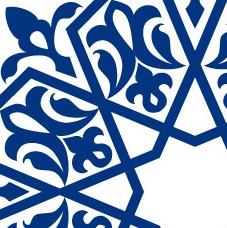Catch up on the latest out of Egypt every week, with analysis, news updates, photos, videos, and more.
Quote of the Week
“There is talk that the army owns 40 percent of the economy. This is not true. It does not exceed two percent of the economy.” Abdel Fattah al-Sisi, former Defense Minister and presidential candidate
Egypt in the News
- Sisi, Sabbahi continue media campaigns
- Thirty-seven Al-Azhar students jailed four years for rioting
- Soldier and policeman killed during raid in Sinai and Sharqiya
- Morsi’s pardons of Islamists to be reviewed
- Egypt court upholds decision to redeploy police on campuses
- Sisi makes rare youth plea
- Egypt’s Douma transferred to hospital, Shamy to undisclosed location
- Police officer killed in Nile Delta shootout
- Sabbahi campaign complains of defamation attacks
- Sisi describes his vision of Egypt’s future in extended interview
- April 6 to boycott upcoming presidential elections
- Hagel says Egyptian government has done enough to continue US aid
- Three lawyers defending AJE journalists quit case in protest
- Government reportedly negotiates $9 billion in Arab aid for next fiscal year
- NASL calls for a week of demonstrations ahead of elections
On EgyptSource
Third Eye Blind: The State of the Egyptian Media by Mohamed Selim
Debunking the Neo-Nasserist Myth by Amr Hamzawy
On the Death of those in the Prime of Life by Amr Hamzawy
In-depth
The Nour Party’s Precarious Future | Abdel Rahman Youssef and Mostafa Hashem, Sada Journal
“Nour Party leadership explained its support of the military to its members as an effort to “preserve Islamic identity and Sharia” by keeping Islamists represented in the government. It argued that had it followed any other course, it would have been submitted to the same fate as the Brotherhood, with its leaders and members thrown in jail or on the run. This has helped fuel the popular impression that the Salafi Dawa employs two contradictory types of rhetoric: one accepting a secular political system, and the other couched in the Islamist terminology of “interests and vices” (al-masalih wa al-mafasid). This means Nour does not have one single coherent discourse; it oscillates between discourses to justify contradictory stances and positions.”
“The movement’s controversial support for the military has also heightened internal divisions. The initial division that weakened the movement followed a disagreement between Emad Abdel Ghaffour, the former leader of the Nour Party, and Yasser Borhami, deputy head of the Salafi Dawa, that led to the former splitting off to form his own Watan Party in January 2013. Nour’s backing of the military and the crackdown on the Brotherhood deepened the rifts between those remaining in the party. A number of the original founders of the Salafi Dawa have stopped attending its meetings, such as Dr. Said Abdel-Azeem, who before June 30 had announced that he believed in “the legitimacy of President Mohammed Morsi.” Abdel-Azeem stayed the course after July 3 and appeared on the speakers’ podium at the Rabia al-Adawiya protest repeatedly; he has been against the Nour Party’s support of the military since the crisis between Nour and the Brotherhood began in January 2013. Dr. Mohammed Ismail al-Muqaddam has also been absent from the movement since July 3, declining to appear in public or speak about politics.”
“Attempting to take over the Brotherhood’s position puts the Salafis at risk of facing the same fate. With the Brotherhood largely out of the way, the Nour Party (and the Salafi Dawa more broadly) is likely to become the secularists’ future enemy. This will not be the case with the military in the short term, because the military regime needs the support of the movement and party for the moment. But while their marriage of convenience will probably survive the presidential elections, the Salafi Dawa will likely continue to splinter internally. It will also have to worry about the effects of the new constitution’s vaguely worded Article 74 (which they had unsuccessfully lobbied to strike down), and which states that “no political parties may be formed on the basis of religion.” Should the secularists decide to use it, this article could send Nour and the Dawa movement the way of the Brotherhood.”
On Twitter: Hunger striking journalist moved to undisclosed location
Last week the Egyptian government moved hunger striking Al-Jazeera journalist Abdullah al-Shamy to an undisclosed location. Shamy’s appearance in a video leaked online sparked concern for the journalist’s health and treatment by the Egyptian officials. Egyptian authorities arrested Shamy last August while covering the dispersal of a large Islamist sit-in supporting Mohamed Morsi.
Lawyer of @AJArabic correspondent @abdallahelshamy ( detained since August) doesn’t know whereabout of his client since yesterday #Egypt
— Nadia el-Magd ناديا (@Nadiaglory) May 13, 2014
Appeal to release @abdallahelshamy has been refused. 45 days more detention for the journo in #Egypt who spend 9 months w/o charges in jail.
— Jonathan Moremi (@jonamorem) May 15, 2014
Just spoke to Al Jazeera’s Abdullah el Shamy he has not broken his hunger strike he is being held in solitary confinement in Scorpion #Egypt
— Bel Trew – بل ترو (@Beltrew) May 15, 2014
Hunger-striking Al-Jazeera journalist warns authorities to blame if health fails http://t.co/x4GNuM1w49 #Egypt
— Nervana Mahmoud (@Nervana_1) May 15, 2014
Cartoon of the Week: Sisi’s Ballot Box

